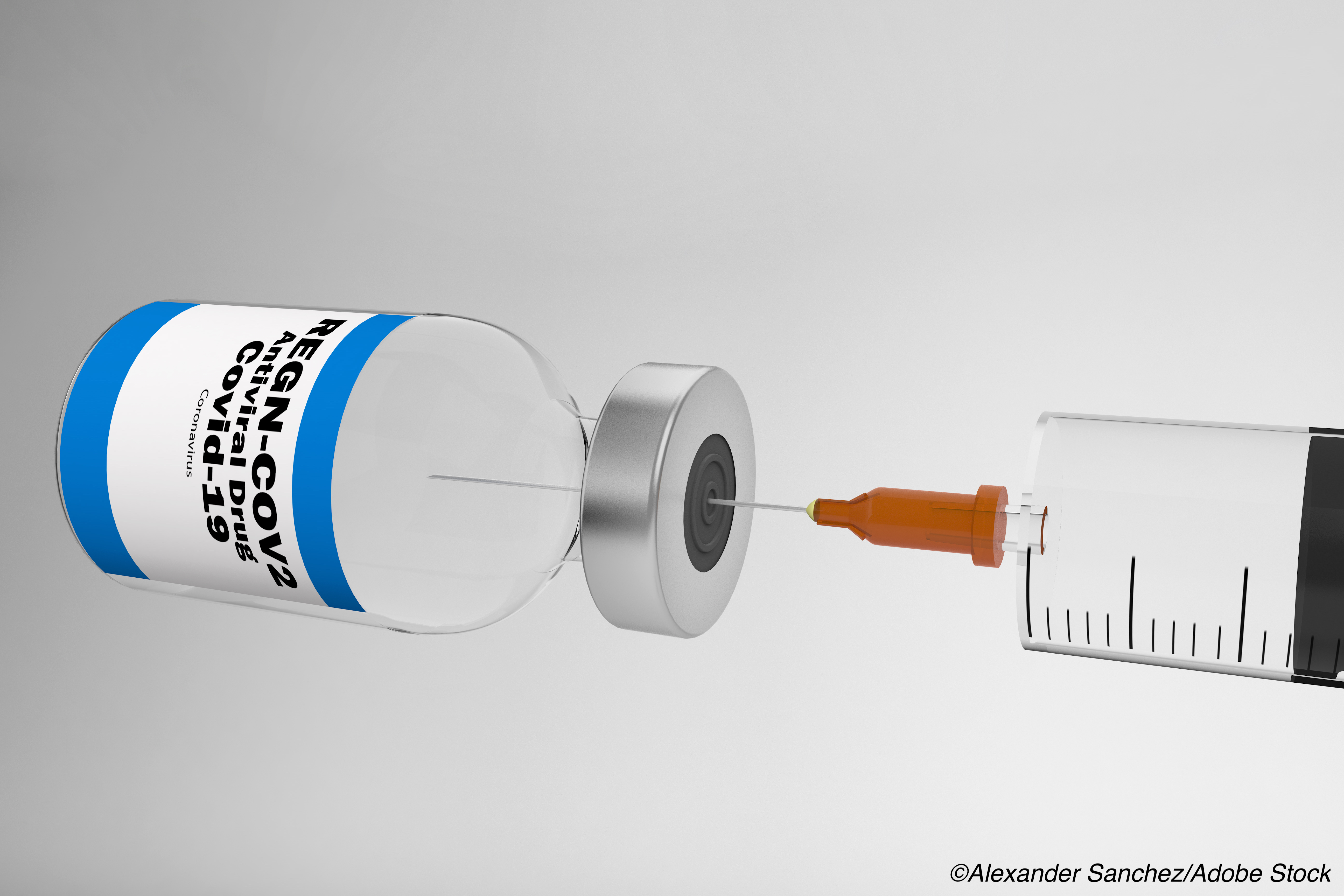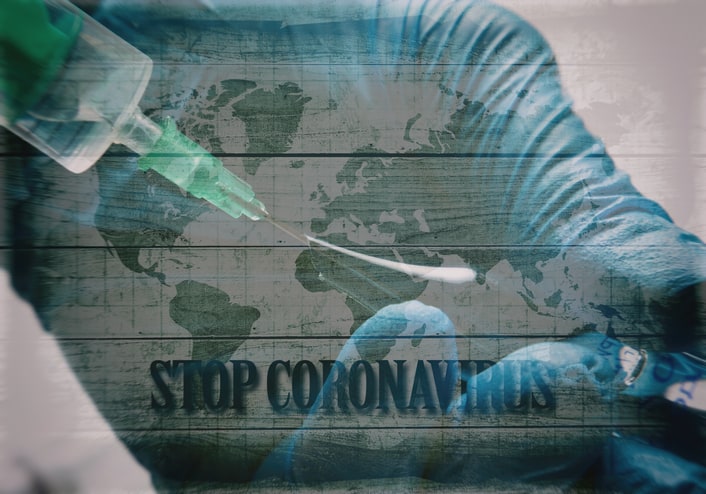
Peer reviewed findings from an interim analysis of Regeneron’s trial of its neutralizing antibody cocktail for Covid-19 showed that treatment was associated with rapid reductions in viral load in patients who were not hospitalized, with the greatest effects seen in patients who had not yet mounted their own effective immune response.
Last month, the FDA granted emergency use authorization (EUA) status to REGN-COV2, and the antibody cocktail was one of the treatments given to President Donald Trump when he was hospitalized for Covid-19 in early October.
REGN-COV2 is made up of two SARS-CoV-2-neutralizing antibodies designed to bind to the critical receptor binding domain of the virus’s spike protein.
In Regeneron’s ongoing trial of the cocktail, the treatment was given to symptomatic, non-hospitalized adults with SARS-CoV-2 infection confirmed through testing no more than 72 hours before randomization, with symptom onset occurring no more than 7 days before randomization.
The interim analysis involving 275 patients was published online Dec. 17 in the New England Journal of Medicine.
“REG-COV2 is a cocktail made up of two noncompeting neutralizing human IgG1 antibodies that target the receptor-binding domain of the SARS-CoV-2 spike protein, thereby preventing viral entry into human cells through the angiotensin-converting enzyme 2 (ACE2) receptor,” wrote Regeneron researcher David M. Weinreich, MD, and colleagues.
“We prospectively pursued a ’cocktail’ approach because of previous experience with the emergency of treatment-resistant mutant virus when a single antibody, suptavumab, was used to target respiratory syncytial virus…” We further hypothesized that in an outpatient context, patients would present at various stages of their own native humoral immune response and that exogenously provided antibodies would have the most benefit in patients whose immune response had not yet been initiated.”
All patients included in the trial were screened for the presence of preexisting antibodies against SARS-CoV-2 and were classified as either serum-antibody-positive or serum antibody-negative prior to entry.
Patients were randomly assigned (1:1:1) to receive placebo, 2.4 g of REGN-COV2, or 8.0 g of REGN-COV2 and were prospectively characterized at baseline for endogenous immune response against SARS-CoV-2.
The study’s primary endpoints included the time-weighted average change from baseline in viral load from day 1 through day 7 and the percentage of patients with at least one Covid-19-related medical visits through day 29.
Among the main findings from the interim analysis:
- The least-square mean difference (combined REGN-COV2 dose groups versus placebo groups) in the time-weighted average change in viral load from day 1 through day 7 was -0.56 log10 copies per milliliter (95% CI, -1.02 to -0.11) among patients who were serum antibody-negative at baseline and -0.41 log10 copies per milliliter (95% CI, -0.71 to -0.10) in the overall trial group.
- In the overall trial population, 6% of the patients in the placebo group and 3% of the patients in the combined REGN-COV2 dose groups reported at least one medical visit.
- Among patients who were serum antibody-negative at baseline, 15% in the placebo group and 6% in the REGN-COV2 group reported at least one medical visit (difference, -9 percentage points, 95% CI, -29 to 11).
- The percentages of patients with hypersensitivity reactions, infusion-related reactions, and other adverse events were similar in the combined REGN-COV2 dose groups and the placebo groups.
“Our data indicate that REGN-COV2 enhanced clearance of virus, particularly in patients in whom an endogenous immune response had not yet been initiated (i.e., serum antibody-negative) or who had a high viral load at baseline,” the researchers wrote.
“A possible difference in the percentage of patients with medically attended visits was observed between the combined REGN-COV2 dose groups and the placebo group (difference, -3 percentage points, 95% CI, -16 to 9), and this effect was also driven almost entirely by patients who were serum antibody-negative at baseline.”
Key limitations cited by the researchers included the absence of formal hypothesis testing performed to control type I error.
“In addition, the analyses according to baseline viral load were post hoc,” they wrote, adding that, “these results should therefore be rigorously tested in the next analysis in this ongoing trial.”
“It was recently shown that an antibody cocktail approach provided a profound survival benefit for patients infected with Ebola virus,” Weinreich and colleagues concluded. “Our analysis suggests that an antibody cocktail against SARS-CoV-2 can also be an effective antiviral therapy, enhancing viral clearance and thus leading to improved outcomes, particularly in patients whose own immune response to the virus is slow to initiate. Further studies, including the continuing phase III portion of this trial, are needed to confirm these effects.”
- Interim analysis of Regeneron’s trial of its neutralizing antibody cocktail for Covid-19 showed treatment was associated with rapid reductions in viral load in patients who were not hospitalized.
- The greatest effects for treatment with REGN-COV2 were seen in patients who had not yet mounted their own effective immune response to infection with SARS-CoV-2.
Salynn Boyles, Contributing Writer, BreakingMED™
This research was funded by Regeneron Pharmaceuticals and the Biomedical and Advanced Research and Development Authority of the Department of Health and Human Services.
Corresponding researcher David M. Weinreich, MD, is an employee of Regeneron, as were other study investigators. Dr Weinreich reported grants from BARDA, during the conduct of the study; personal fees and other from Regeneron Pharmaceuticals, Inc., outside the submitted work; .
Principal researcher George Yancopoulos reported receiving grants from BARDA, during the conduct of the study; personal fees and other from Regeneron Pharmaceuticals, Inc., outside the submitted work; In addition, Dr. Yancopoulos has a patent US10787501: Anti-SARS- CoV-2-Spike Glycoprotein Antibodies and Antigen-Binding Fragments issued, and a patent US 60/030,260 Anti-SARS-CoV-2- Spike Glycoprotein Antibodies and Antigen-Binding Fragments pending.
Cat ID: 190
Topic ID: 79,190,254,930,728,791,932,730,933,190,926,192,927,151,928,925,934


